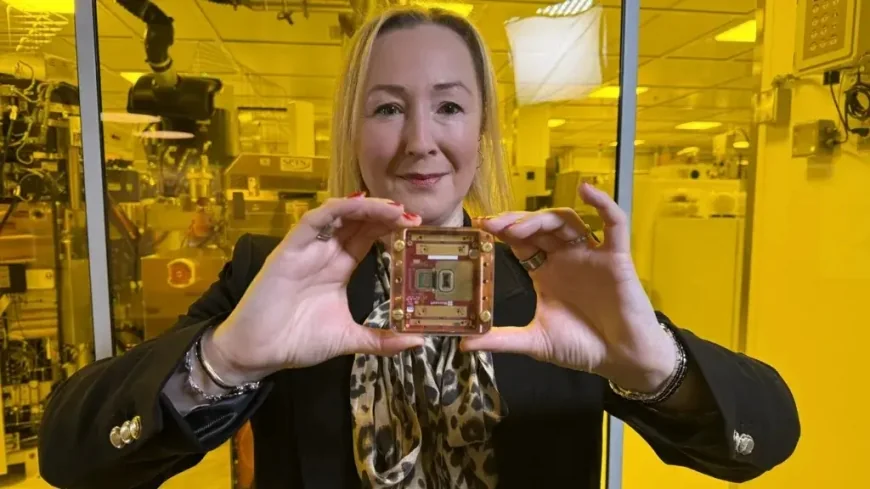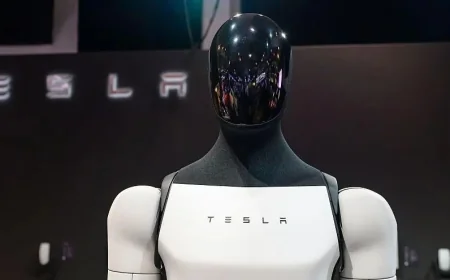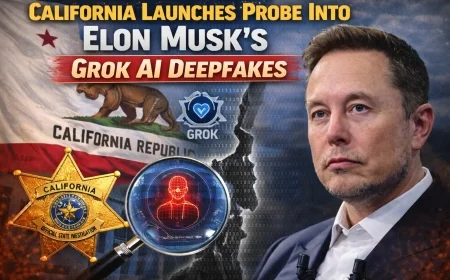Will quantum be bigger than AI
There's an old saying among tech journalists like me: You can either explain quantum precisely, or in a way that people can understand, but you can't do both.

That's because quantum mechanics—a strange and partly theoretical branch of physics—is a notoriously difficult concept to grasp.
In it, tiny particles behave in strange ways. And this strange activity has opened up a whole new world of scientific superpowers.
Its incredible complexity is perhaps one reason why quantum has become less popular than the current rockstar of technology—artificial intelligence (AI).
This is despite several major quantum-related announcements recently by tech giants like Microsoft and Google.
Broadly speaking, we typically think of quantum as being associated with hardware like sensors and computers, whereas AI is more software-based—it requires hardware to operate.
All of this combined means we may one day have a new form of technology far more powerful than anything ever created... However, Brian Hopkins, vice president and chief emerging technology analyst at research firm Forrester's, cautions that the word "probably" is being overstated in this particular prediction.
"The possibilities are there, but nothing conclusive yet," he says.
"Early experiments look promising, but all indications are that we need much more powerful quantum computers and further innovative research to effectively apply quantum effects to AI."
In terms of value, both are attractive. According to market research group McKinsey, the quantum field could be worth $97 billion (£74 billion) by 2025.
Meanwhile, AI is estimated to be worth trillions of dollars. But both have been overshadowed by hype and bursting bubbles.
"I used to think quantum computing was the most hyped technology before the AI craze began," Mr. Hopkins jokes.
In mid-October, analysts warned that some leading quantum stocks could fall by 62%, while discussions about an AI bubble were escalating.
Quantum and AI have another similarity: errors. Although we are now well aware of the "illusions" of generative AI tools, quantum is prone to a different kind of error.
These errors occur because the state in which particles must operate is very delicate. Even minor changes in the environment, including light and noise, can disrupt them.
Maintaining such an environment is difficult. This week, Elon Musk suggested on X that quantum computing would run best in "permanently shadowed craters on the moon."
Quantum computers don't look like conventional machines at all. They don't have any design blueprints, but they are currently much larger.
These are available in laboratories, and the most commonly adopted design involves a jellyfish-inspired shape.
They require extremely cold temperatures and lasers. This isn't something you'll find in your home, much less in your pocket.
They're also a bit shiny—researchers have found that using synthetic diamonds to create qubits, the building blocks of quantum computers, can operate at temperatures very close to room temperature.
Luxury jeweler De Beers has a subsidiary called Element Six, which claims to have launched the world's first general-purpose quantum-grade diamond in 2020. And it has worked with Amazon Web Services on optimizing synthetic diamonds for future networks of quantum machines.
Quantum and AI have another similarity—errors. Although we're now quite familiar with the "hallucinations" of generative AI tools, quantum suffers from a different kind of error.
These errors occur because the state in which the particles must operate is very fragile. Even minor changes in the environment, including light and noise, can disrupt them.
Maintaining such an environment is difficult. This week, Elon Musk suggested on X that quantum computing would be best done in "permanently shadowed craters on the Moon."
Quantum computers don't look like conventional machines. There are no blueprints for their design, but they are currently very large.
They are available in laboratories, and the most commonly adopted form appears to be a jellyfish-inspired shape.
What's Your Reaction?
 Like
0
Like
0
 Dislike
0
Dislike
0
 Love
0
Love
0
 Funny
0
Funny
0
 Angry
0
Angry
0
 Sad
0
Sad
0
 Wow
0
Wow
0












































